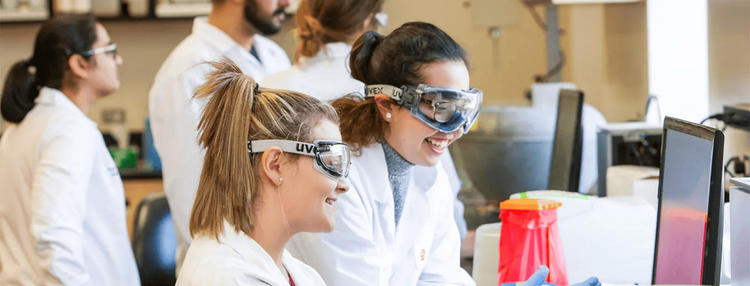
Collaborative Specializations in OAC
Add a collaborative specialization to your OAC degree program
Collaborative specializations enhance your learning experiences by integrating multidisciplinary perspectives into your existing master's and doctoral programs. By combining a collaborative specialization to your masters or PhD degree, you'll broaden your skill set and gain a comprehensive, holistic approach to your studies, preparing you to tackle complex challenges in agriculture, food, environment, and communities.
What is a collaborative specialization?
Collaborative specializations are intra-university graduate fields of study that provide additional multidisciplinary experiences for students in an approved masters or doctoral program. Students are required to apply to a specialization when applying to their main master's or PhD degree program. Collaborative specializations include: International Development Studies, Neuroscience, One Health, and Toxicology.
Available Specializations

International Development Studies
Focus your master's or PhD studies on global development. Gain interdisciplinary training and perspectives from faculty with expertise in development in regions including Asia, Africa, Eastern and Western Europe and the Americas. Engage deeply in interdisciplinary theories and conduct research on global development issues across academic disciplines.
Available to students applying to programs within: Animal Biosciences, Environmental Sciences, Food, Agricultural and Resource Economics, Plant Agriculture, and Rural Planning and Development.

Neuroscience
Gain a unique advantage and engage in research in the rapidly expanding field of neuroscience.
Combine this specialization with your MSc or PhD degree in Animal Biosciences for the best possible foundation for an academic careers in neuroscience and related areas. Collaborate with faculty working across various levels of analysis, including molecular, cellular, systems, and behavioural research.
Available to students applying to programs within: Animal Biosciences.

One Health
Add a collaborative specialization in One Health to your master's or PhD degree and help address the complex challenges at the intersection of human, animal, and environmental health. You'll work across disciplinary boundaries, conducting research, mobilizing knowledge, and informing policy. Prepare to work at the forefront of these complex challenges while gaining a unique perspective on complementary disciplines.
Available to students applying to programs within: Animal Biosciences, Environmental Sciences, Food Science, Rural Planning & Development.

Toxicology
Gain a deeper understanding of how contaminants impact plants, animals, food systems, and the environment. Pair this collaborative specialization to your master's or PhD degree and equip yourself with the skills to conduct high-quality research. Whether you're aiming to solve real-world challenges in food safety, environmental health, or animal welfare, this specialization broadens your perspective and boosts your impact.
Available to students applying to programs within: Animal Biosciences, Environmental Sciences, Food Science, Plant Agriculture.
Take the Next Step
If you're interested in adding a collaborative specialization to your OAC graduate degree, contact the graduate program assistant for the program you're applying for:
Students applying to the Animal Biosciences MSc or PhD program can add the International Development Studies (IDS), One Health, Toxicology, or Neuroscience collaborative specialization.
Contact:
Chantelle Prigione
Graduate Program Assistant
abscgradthesis@uoguelph.ca
Students applying to the Environmental Sciences MSc or PhD program can add the International Development Studies (IDS), One Health, or Neuroscience collaborative specialization.
Contact:
School of Environmental Sciences
ses.gradsec@uoguelph.ca
519-824-4120, Ext. 53937
Students applying to the Environmental Sciences MSc or PhD program can add the International Development Studies (IDS) collaborative specialization.
Contact:
Graduate Program Assistant
faregrad@uoguelph.ca
519-824-4120, Ext. 52771
Students applying to the Food Science MSc or PhD program can add the One Health or Toxicology collaborative specialization.
Contact:
Jon Abram
Department of Food Science
foodinfo@uoguelph.ca
519-824-4120, Ext. 52705
Students applying to the Environmental Sciences MSc or PhD program can add the International Development Studies (IDS) or Toxicology collaborative specialization.
Contact:
Tara Israel
Administrative Graduate Assistant
pagradprogram@uoguelph.ca
519-824-4120, Ext. 56077
Students applying to the Rural Planning & Development MSc program can add the International Development Studies (IDS) or One Health collaborative specialization.
Contact:
Lorena Barker
SEDRD Graduate Program Assistant
rpd@uoguelph.ca
519-824-4120, Ext. 56780